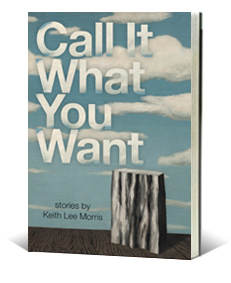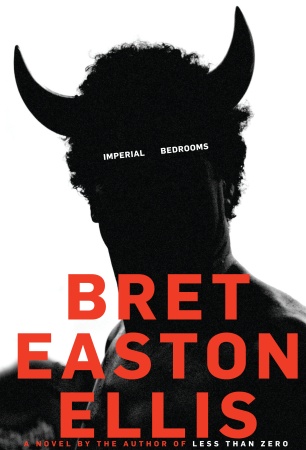What’s the one story you keep writing over and over? I don’t mean revising. I mean the aesthetic or emotional or dream-fugue house that all of your stuff keeps trying to break into. What does it look like? What is its essence?
Friday Fuck Books, Let’s Let Our Contemporary Indie Musician Friends Discover the Joys of Melodrama.
httpv://www.youtube.com/watch?v=5BXr_4g0o9M
httpv://www.youtube.com/watch?v=Puph1hejMQE
Adding more as they occur to me. Adding a jump for to not take so much of the blog spaces.
READ MORE >
Friday, No? Go Right Ahead.
Nail your whiskey sweat over the fireplace.
If you’re going to write, for God in heaven’s sake, try to get naked.
Part drunk, part bee-stung dog.
Holding a bottle and a leashed alligator.
You ever lived out of a lake?
A snake will bite when dead.
I’d much rather sit here and look at trees.
You smell sweeter than soap.
I don’t drink liquor!
I fall into…
I dip my tongue.
Pier Paolo Pasolini on Writing

“One should never hope for anything.”
“If you know that I am an unbeliever, then you know me better than I do myself. I may be an unbeliever, but I am an unbeliever who has a nostalgia for a belief.”
“But I do not believe in a metaphysical god. I am religious because I have a natural identification between reality and God. Reality is divine. That is why my films are never naturalistic. The motivation that unites all of my films is to give back to reality its original sacred significance.”
“When I make a film, I shift into a state of fascination with an object, a thing, a fact, a look, a landscape, as though it were an engine where the holy is about to explode.”
“I am a murderer but I am a good person.”
“Don’t talk to me of the sea while we are in the mountains.”
“If I have access to an administrative council or a Stock Market maneuver, that’s what I use. Otherwise I use a crowbar. And when I use a crowbar, I’ll use whatever means to get what I want.”
“I say let’s not waste time placing nametags here and there. Let’s see then how we can unplug this tub before we all drown.”
Announcement and Call for Submissions: The Official Catalog of the Library of Potential Literature
Word on an exciting new project from Ben Segal:

Dear Internet,
We are very excited to announce the coming existence of The Official Catalog of the Library of Potential Literature. The Catalog is to consist of a series of blurbs/short descriptions of books that do not exist. In order to compile that Catalog, we have asked many of the writers, theorists, and text-makers we most admire to imagine that they’ve just read the most amazing book they’ve ever encountered and then write a brief blurb about the imagined text.
As many of you know, The phrase ‘potential literature’ is highly associated with the Oulipo group. We choose to use the phrase here because, as the Oulipo says, their project, properly, is to conceptualize forms and potential works: not necessarily to bring them into being. Literature is potential literature when it is that shimmering non-work of total possibility. Though Official only by way of titular hyperbole (itself, like the blurbs contained within, a kind of unfulfilled and unfulfillable promise), the Catalog will evoke a library of wonderful–maybe even impossible–books; books that, in spite or even because of their non-existence, excite and fascinate. Each paragraph will be the promise of the unopened book in the moment before reading.
May 7th, 2010 / 12:23 pm
Writing Prompt: You’re Wrong, Emily Dickinson!
Music For Real Airports from The Black Dog on Vimeo.
An electronic group called The Black Dog thinks that Brian Eno got it wrong. So they have tried to rectify the problem.
In 1978, Brian Eno released an album called Music for Airports. It’s a classic, a sacred cow of ambient music, written by the man who coined the term for the genre. It’s also meant to be used by airports, intended to be played to help release the tensions of travel.
That doesn’t sit right with The Black Dog. They have responded with Music for Real Airports. From their press release: “”Airports have some of the glossiest surfaces in modern culture, but the fear underneath remains. Hence this record is not a utilitarian accompaniment to airports, in the sense of reinforcing the false utopia and fake idealism of air travel. Unlike Eno’s Music For Airports, this is not a record to be used by airport authorities to lull their customers.”
Here’s a task. Take a classic piece of writing. Decide what you think it intends to do. (A famous—and very simple—example: Candide intends to satirize Gottfried Leibniz’s optimism, that we live in the best of all possible worlds*.) Disagree with that. Even if you agree with it, find a way to disagree with it. Embrace the contrarian within.
Not the most original prompt, I admit. But a slight twist on it, I hope.
* And, yes. Voltaire misunderstood Leibniz.
Keith Lee Morris’ Fragile Men

Call it What You Want: Stories by Keith Lee Morris. Tin House Books. pp. 264, $14.95 list ($10.76 at the above-linked B&N.com).
Reviewed by Jennifer Bassett.
.
My first “real” writing class was in high school and taught by a young man who had just graduated from an MFA program. He was excited and passionate and on the first day of class he read us Denis Johnson’s “Car Crash While Hitchhiking” from Jesus’ Son. We were all riveted. First of all, the story involved drugs (!) and secondly the writing was so sharp, it practically slit our wrists. For me, personally, that moment was particularly pivotal. Jesus’ Son and Johnson’s particular brand of writing—tough, honest, gritty, male, but with an undercurrent of boyish vulnerability—came to represent a standard by which I judged everything else.
May 7th, 2010 / 10:26 am
Sequel to Less Than Zero

Bret Easton Ellis’s Imperial Bedrooms
Forthcoming from Knopf
Ellis explores what disillusioned youth looks like 25 years later in this brutal sequel to Less Than Zero. Clay, now a screenwriter, returns at Christmas to an L.A. that looks and operates much as it did 25 years ago. Trent is now a producer and married to Clay’s ex, Blair, while Julian runs an escort service and Rip, Clay’s old dealer, has had so much plastic surgery he’s unrecognizable. While casting a script he’s written, Clay falls for a young, untalented actress named Rain Turner, and his obsession and affair with her powers him through an alcoholic haze that swirls with images of death, mysterious text messages, and cars lurking outside his apartment. The story takes on a creepy noirish bent–with Clay as the frightened detective who doesn’t really want to know anything–as it barrels toward a conclusion that reveals the horror that lies at the center of a tortured soul. Ellis fans will delight in the characters and Ellis’s easy hand in manipulating their fates, and though the novel’s synchronicity with Zero is sublime, this also works as a stellar stand-alone.
–from Publishers Weekly (Starred Review)

